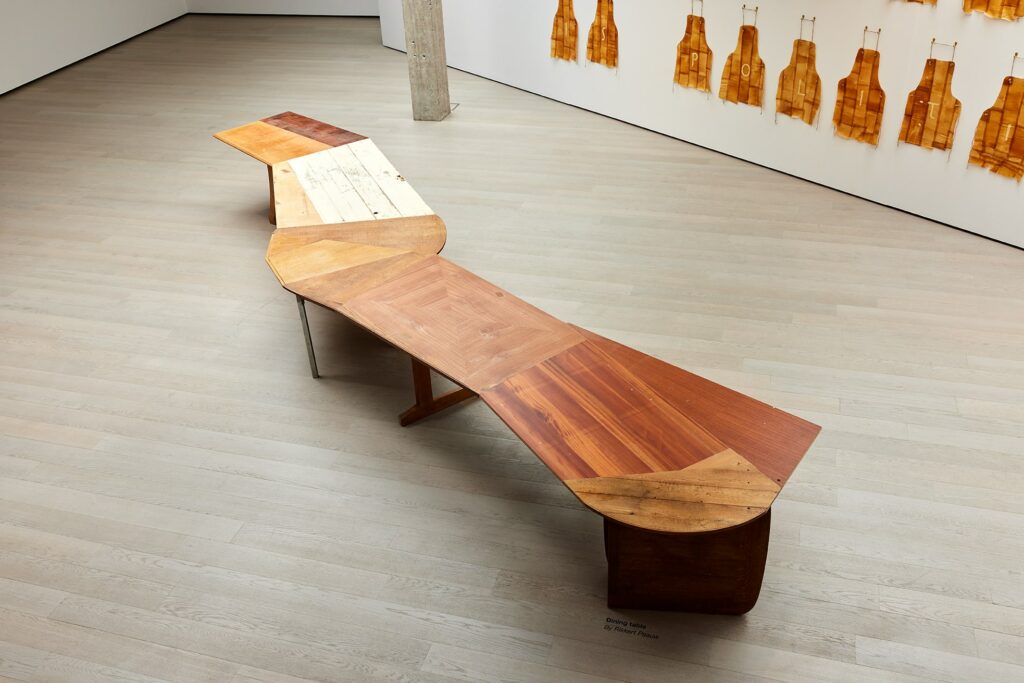 Rikkert Paauw
Rikkert Paauw
Rikkert Paauw (he/him) is a Dutch designer and architect based in Belgium, represented by Valerie Traan Gallery in Antwerp. Through chance encounters and discoveries, he utilizes local resources and scavenged materials in order to compose a room or to create a functional piece for the home. The materials amassed during his wanderings gain new purpose within new contexts, continuing the narratives of the objects while displaying traces of their previous lives.
Rumbling and growling we arrive At the Table, but the sounds are not only from hungry stomachs or digestion – they are echoes of global trade, political powerlessness, colonial histories and unaccommodating social norms. Acknowledging the grip that food scarcity and abundance has on our lives, the artworks in this exhibition recognise what a food-dependent body is.
Candid narratives reveal the multifaceted origins of our everyday ingredients, evoking fundamental questions about how our bodies interact with food, and ultimately the world around us. The works prompt us to be attentive to the intellectual and bodily digestion that we continuously part-take in, considering that we metabolise artworks much like food.
This exhibition is a response to how we, as eaters, consume the politics of our food infrastructures. From the Earth to our mouth, eating is a collaborative act that confronts us with our inescapable reliance on one another. Through edible artworks, food happenings and participatory activities, visitors are welcomed At the Table to leave traces, like bread crumbs, for others to consume.
At The Table is paired with three different food happenings that tackle various appetites. For the opening, Micheline Nahra will host a food experience shaped by the paradox
of diplomacy. At the Brandstof, Seasonal Neighbours will present in-depth groundwork about migrants in the farming industry that supply
us with year-round fresh produce. For Natafelen, Amanny Ahmad will provision a Palestinian dinner foraged from industrialised and natural landscapes.


